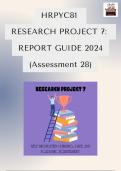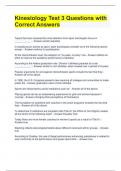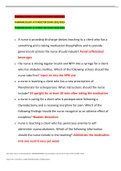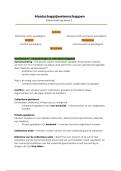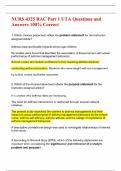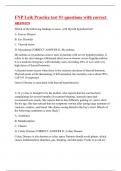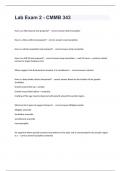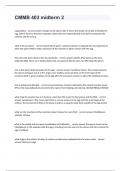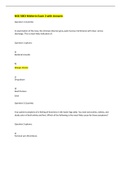Exam (elaborations)
HRPYC81 Project 7 Report Guide Assignment 28 2024
- Course
- RESEARCH REPORT (HRPYC81)
- Institution
- University Of South Africa (Unisa)
Detailed research report guide with example answers for the sections, additional notes and tips, AND links for additional resources. PLUS , an example of accepting/rejecting 3 hypotheses using the 2024 results and a past report that got 95%.
[Show more]
